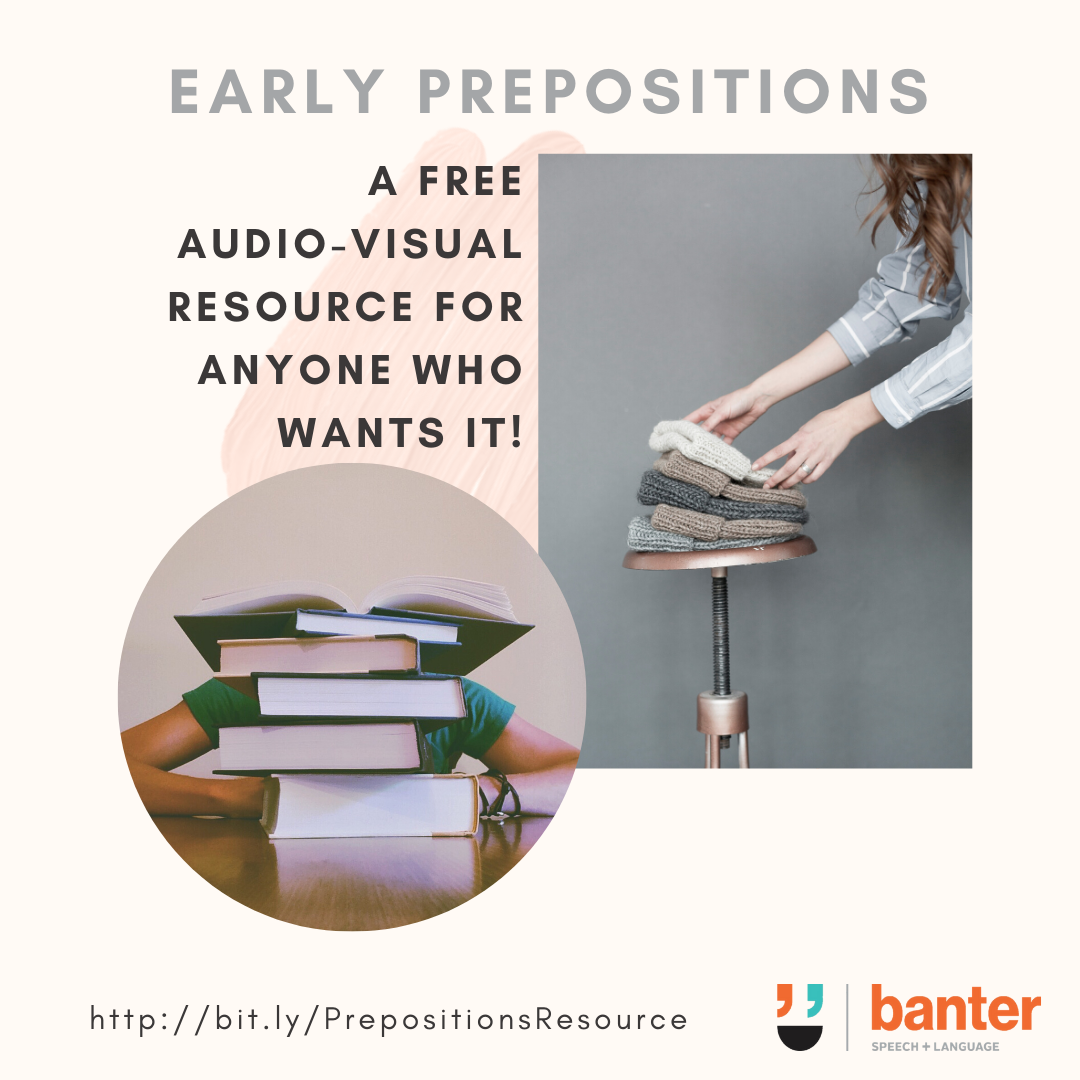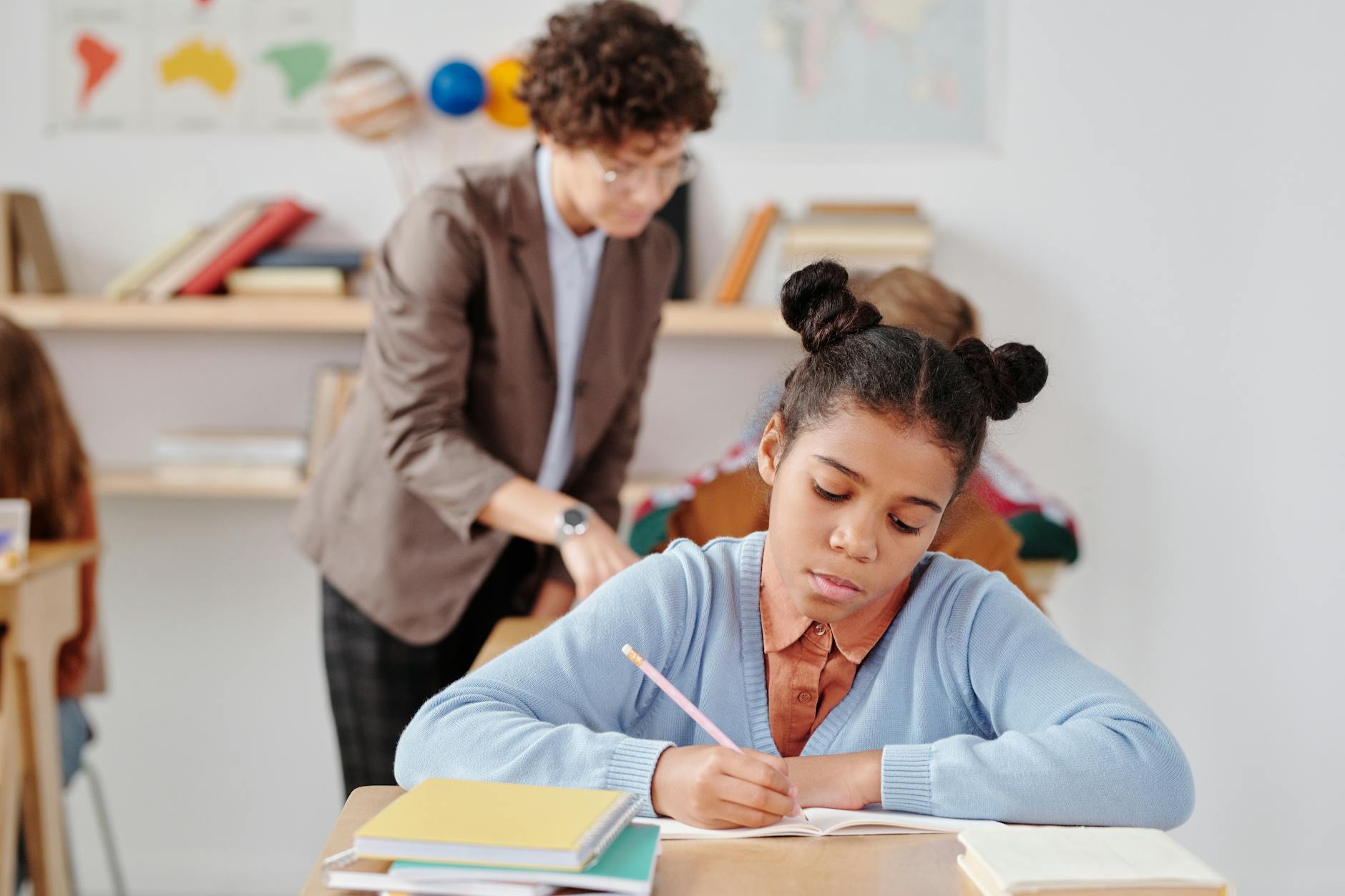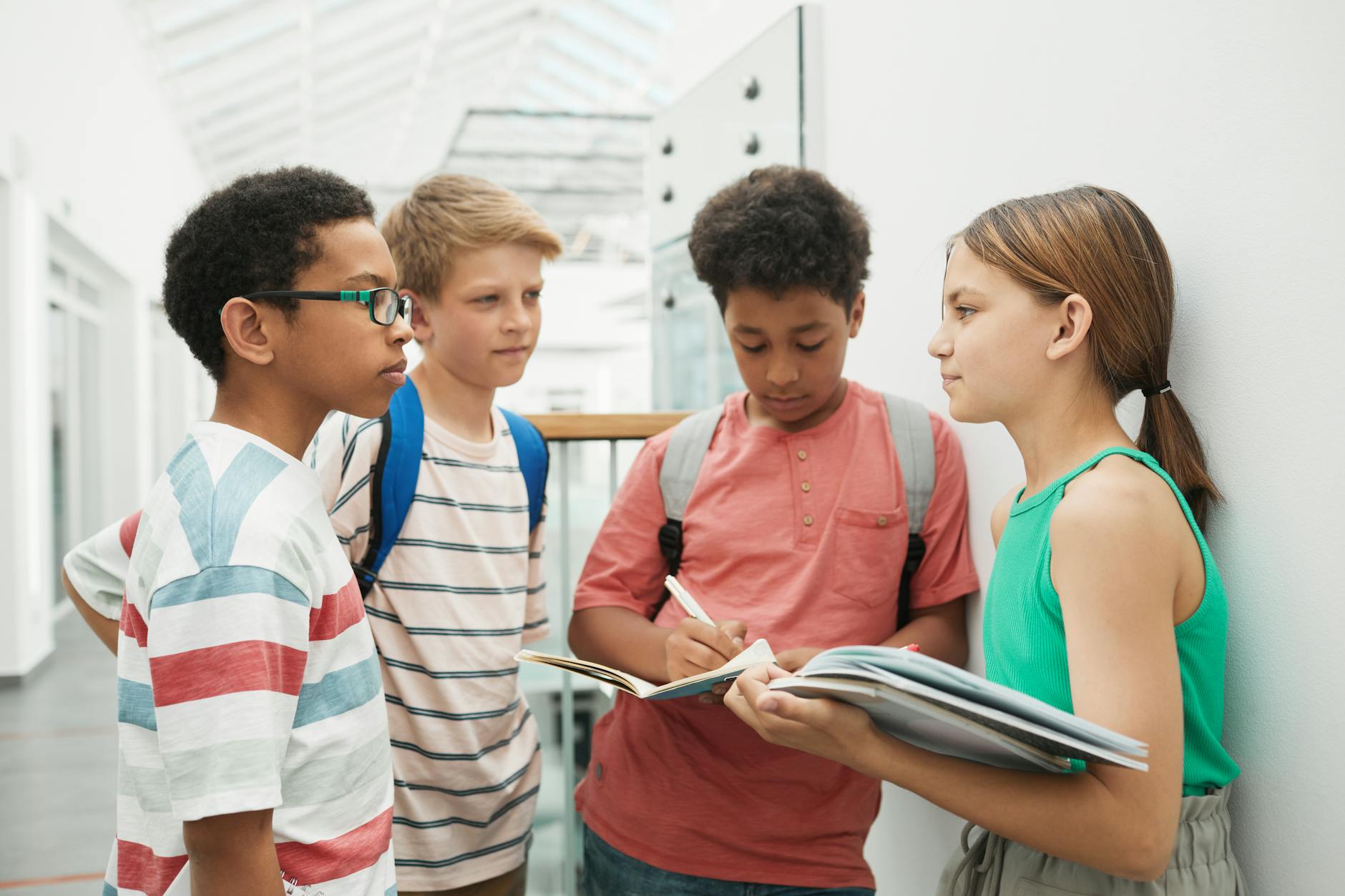Early Prepositions: A FREE audio-visual resource for anyone who wants it!
From around 18-24 months of age, typically developing children start to understand and to use words like “on”, “off”, “up”, “down”, “in”, and “out”. As their language improves, children start to understand and use other words like “over”, “under”, “between”, “in front”, “behind”, “beside”, “next to” and “through”.
All these words are “prepositions”. Early “prepositions” are all about the positions of things in space, or relative to other things. This makes sense: the word “preposition” comes from the Latin praepositio(n- ), from the verb praeponere, which in turn is made up of:
- prae ‘before’ +
- ponere ‘to place’.
Many children – including some children with developmental language disorders, and some children learning English as an additional language – have difficulties understanding and using early prepositions.
As any experienced speech pathologist will tell you, lots of children struggle to pick up prepositions from passively looking at worksheets or books. It’s much better to show children what the words mean, for example, in natural play activities.
Many children with preposition difficulties needs lots (and I means LOTS) of repetition. And some children struggle to learn words in play activities – for example, children who have difficulties with joint attention and/or play.
To make things easier for families, preschool teachers, child carers, speech pathologists, students, assistants, and others working with young children, we have put together a library of short early preposition videos. For each preposition, we provide ten examples of the preposition in action using familiar objects. We then invite children to “show us” the preposition in question by having a go at showing it.
Important thanks and credits
The videos in this free resource were made by:
- our wonderful first year speech pathology Masters students from the University of Technology, Susannah and Joe;
- Cherie – our hard-working, multi-tasking administrative assistant and fourth year University of Sydney speech pathology undergraduate student. (Cherie made some of the trickier videos, and helped me oversee the project – all in between answering phone calls); and
- some of our busy Banter clinicians between therapy sessions.
Now, none of us will be challenging for Best Director at this year’s Oscars. Different speech pathologists and students used slightly different ways of modelling the prepositions, and our editing is a little rough and ready in places. However, this project was not about slick perfection; it’s about giving children multiple exposures to each preposition in as little time as possible while showing what it means.
These videos can be used within our learning platform, or downloaded to your preferred storage spot. They are designed to be watched during everyday activities, e.g. at the start of mealtimes, in the car, or while waiting in lines.
Bonus
We’ve added in some evidence-based tips you can use to help children to understand and learn prepositions. These include overviews of techniques like following the child’s lead, focused stimulation, modelling and recasting.
Thank you!
We’ve had great feedback on the videos from clients and their families, and wanted to share them with others as a free resource.*
We hope you find these videos as useful as we do!
*Licence details: These resources are published under a standard Creative Commons Attribution-NonCommercial (CC BY-NC) License. You can read more about this kind of license here.
Related articles:
- Early Prepositions: A free audio-visual resource
- Real world things your child should know before starting school I: position words (prepositions), places, home address, and directions
- Following instructions: why so many of us struggle with more than one step

Hi there, I’m David Kinnane.
Principal Speech Pathologist, Banter Speech & Language
Our talented team of certified practising speech pathologists provide unhurried, personalised and evidence-based speech pathology care to children and adults in the Inner West of Sydney and beyond, both in our clinic and via telehealth.








